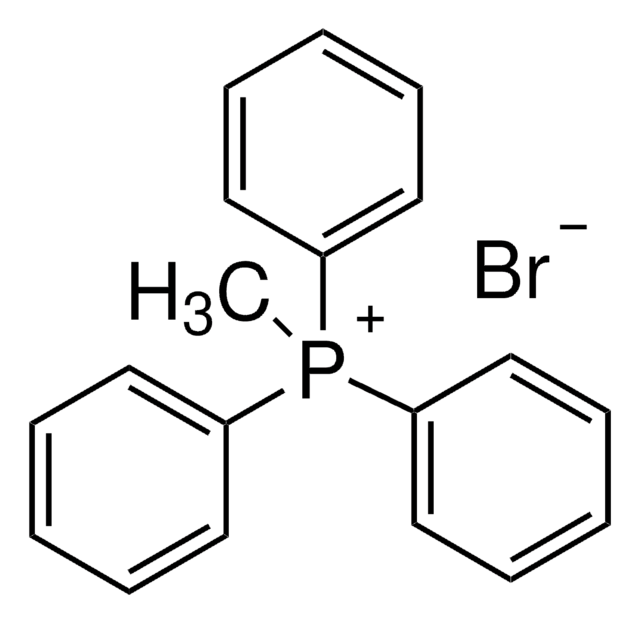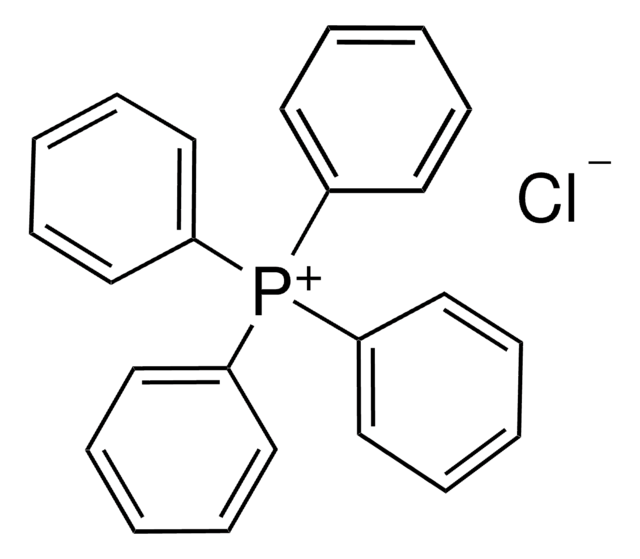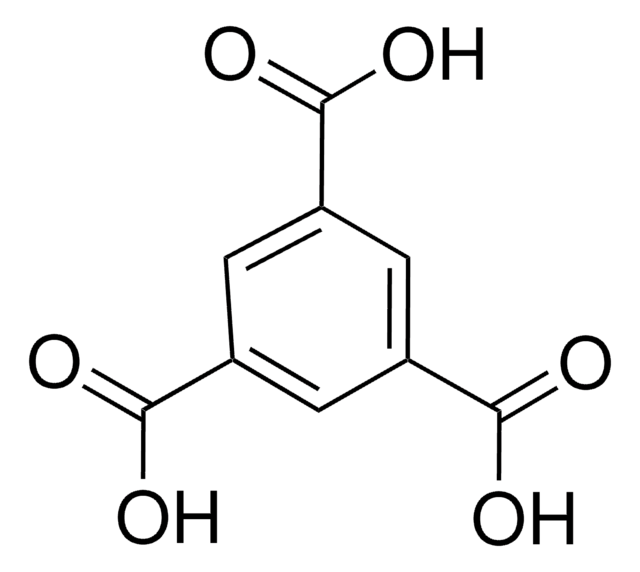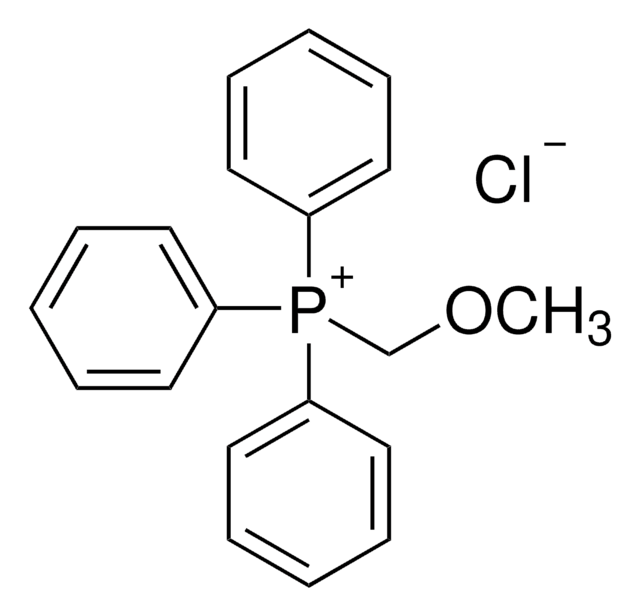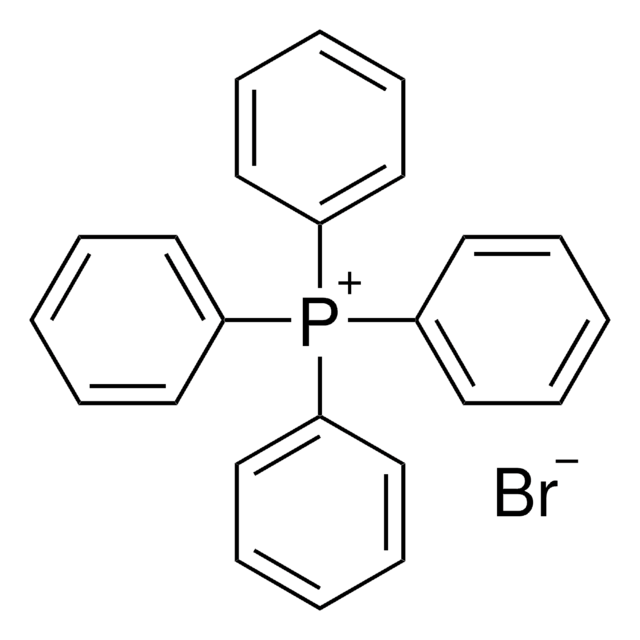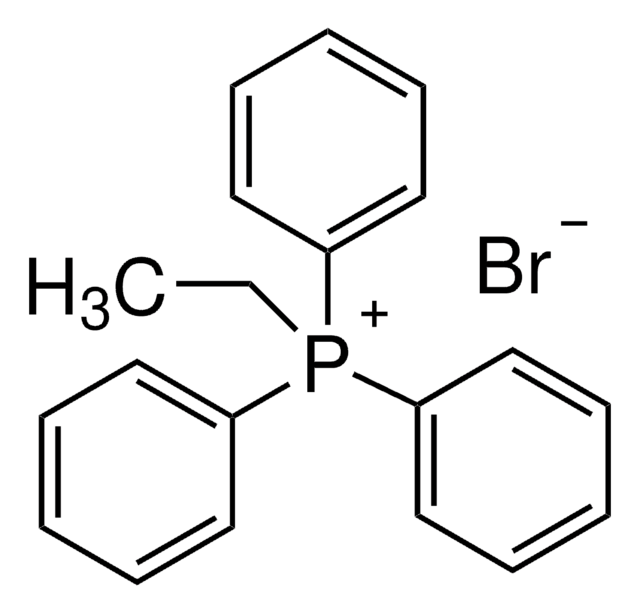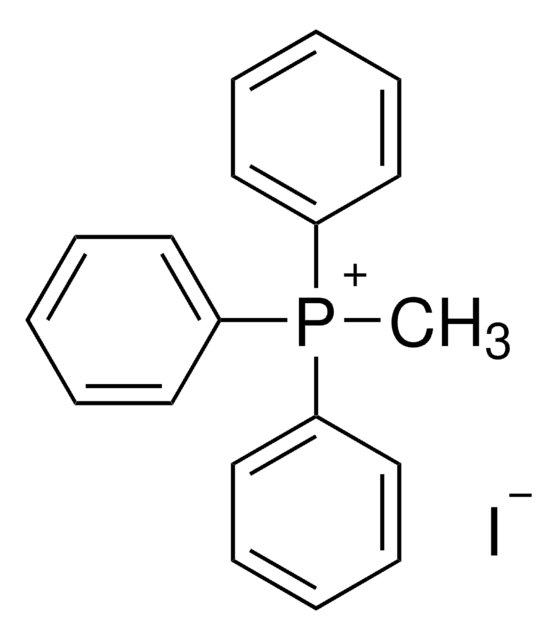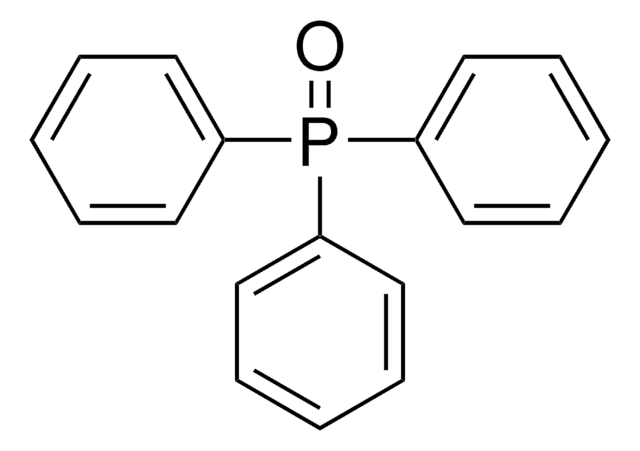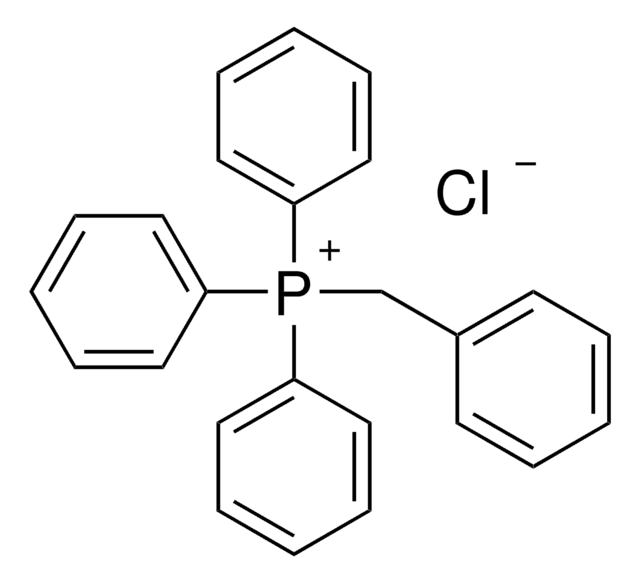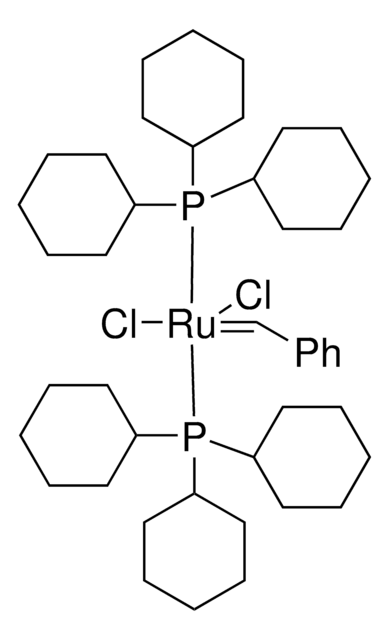About This Item
Recommended Products
Quality Level
Assay
97%
form
solid
reaction suitability
reaction type: C-C Bond Formation
mp
221 °C (dec.) (lit.)
functional group
phosphine
SMILES string
[Cl-].C[P+](c1ccccc1)(c2ccccc2)c3ccccc3
InChI
1S/C19H18P.ClH/c1-20(17-11-5-2-6-12-17,18-13-7-3-8-14-18)19-15-9-4-10-16-19;/h2-16H,1H3;1H/q+1;/p-1
InChI key
QRPRIOOKPZSVFN-UHFFFAOYSA-M
Application
Used for:
- Corrosion inhibition of iron
- Neoplasm inhibition via antimitochondrial effect
Reactant for intramolecular nitrone cycloaddition
Signal Word
Danger
Hazard Statements
Precautionary Statements
Hazard Classifications
Acute Tox. 3 Oral - Acute Tox. 4 Dermal - Aquatic Chronic 2 - Eye Dam. 1 - Skin Irrit. 2
Storage Class Code
6.1C - Combustible acute toxic Cat.3 / toxic compounds or compounds which causing chronic effects
WGK
WGK 3
Flash Point(F)
Not applicable
Flash Point(C)
Not applicable
Personal Protective Equipment
Regulatory Listings
Regulatory Listings are mainly provided for chemical products. Only limited information can be provided here for non-chemical products. No entry means none of the components are listed. It is the user’s obligation to ensure the safe and legal use of the product.
JAN Code
468002-VAR:
468002-25G:
468002-BULK:
468002-5G:
Choose from one of the most recent versions:
Already Own This Product?
Find documentation for the products that you have recently purchased in the Document Library.
Customers Also Viewed
Our team of scientists has experience in all areas of research including Life Science, Material Science, Chemical Synthesis, Chromatography, Analytical and many others.
Contact Technical Service